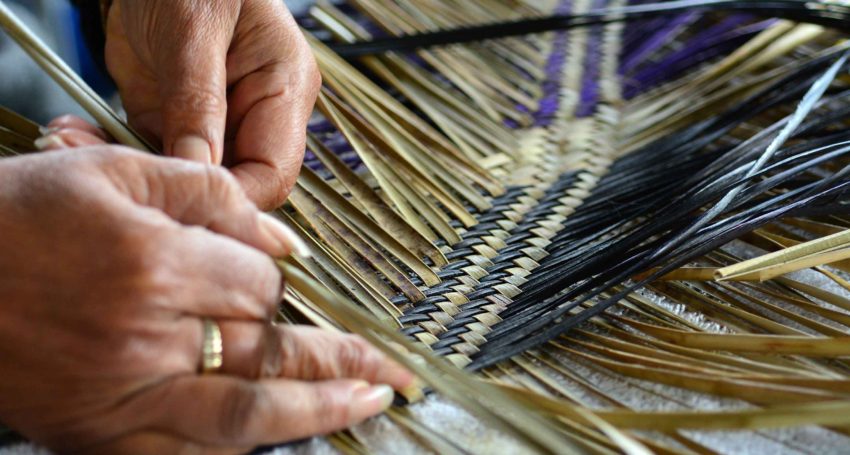Pass and receive the thread to life
Features
“If you’ve ever used a woven flax basket, you’ll know how incredibly strong they are. A strand on its own has no real power, but woven, each strand’s power lies in its connection to the others,” says St John’s Cathedral community member Jane Francis on Maori raranga (‘the art of weaving’)

It’s easy in a large city, with work, family, and the ups and downs of life, to suffer quietly on our own, and to hide our joy and successes out of modesty or politeness.
And so, it is comforting to turn to the craft and the metaphor of weaving, which is a popular metaphor in New Zealand. Te whare pora (‘the house of weaving’) has been described as a “state of being”, as well as a place. Weavers who were initiated into this house had their levels of consciousness raised to be in a state of optimum readiness to receive knowledge. This was achieved through karakia (‘prayer’) and initiation ceremonies. It was believed that the karakia endowed the student with a receptive mind and a retentive memory.
Advertisement
Maori believe that the past is also the future and the present is an eternal circle. Raranga (‘the art of weaving’) has been passed down from the ancestors to the people living today and is a living symbol that has survived for many generations.
The spirit of raranga evokes feelings of spirituality, of togetherness and of unity. The art of weaving is not only sacred but it literally weaves together all the people of the tribes and their ancestors, ensuring that the tribes remain strong and that memories are kept alive.
So going back to those lovely words, “We pass and receive the thread”…we are simultaneously both giver and receiver. If we are doing too much of one or the other, we risk being out of balance. Our hope and our suffering are bound together in community and our hope is always open to the movement of the Holy Spirit. Hope is not an individual endeavour.
If you’ve ever used a woven flax basket, you’ll know how incredibly strong they are. A strand on its own has no real power, but woven, each strand’s power lies in its connection to the others. Paul suggests in Romans that if you have power in this world you are called to use it to be an ally, be a sibling, to empower those with less, to create justice together, not individually, and not from a distance or a great height. We are called to pass the thread and we are also called to receive the thread when we find ourselves in need of strength. Ultimately, we are called to weave our lives together into something new, something subversive, a new creation in our understanding of God by seeing God in each other and in our new creation.
Advertisement
As Scot McKnight has eloquently stated, “if we are strong and have privilege and power, we will not broker our power to divide the faith community, but we will disempower ourselves to empower each sibling at the table and so live out the gospel of Christ.”
A woven item may still be strong, but it is not so tightly bound that there is not still room for the light to get in. Our creation is always seeking and receiving Christ as the guider of the threads.
So perhaps we can contemplate how we work on the emerging new story whilst also leaving space for the mystery to continually break through. How do we weave together with mutuality and accommodation and remember that there is always more to be discovered about God and each other?
There are opportunities to be found in communal art, the art of being together to create an openness to the Spirit, rather than a drive towards an outcome. Surely this kind of spirit-filled, transforming, ongoing, diverse togetherness is cause for great rejoicing.
Scot McKnight, 2019, Reading Romans Backwards: A Gospel of Peace in the Midst of Empire: SCM Press.
First published in the November 2020 edition of The Eagle, the magazine of St John’s Cathedral. Read the latest edition of The Eagle online.





